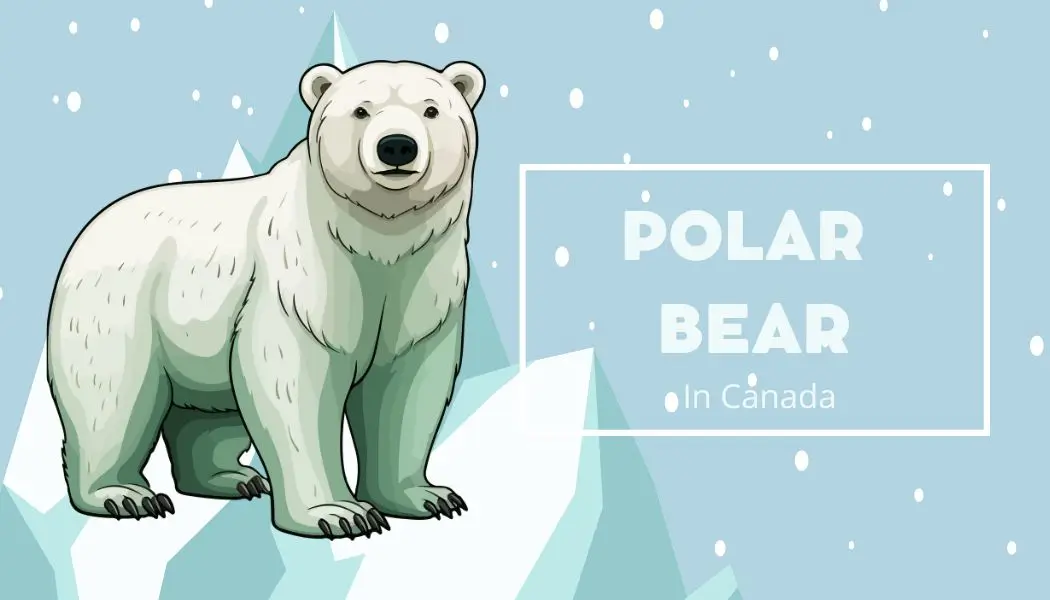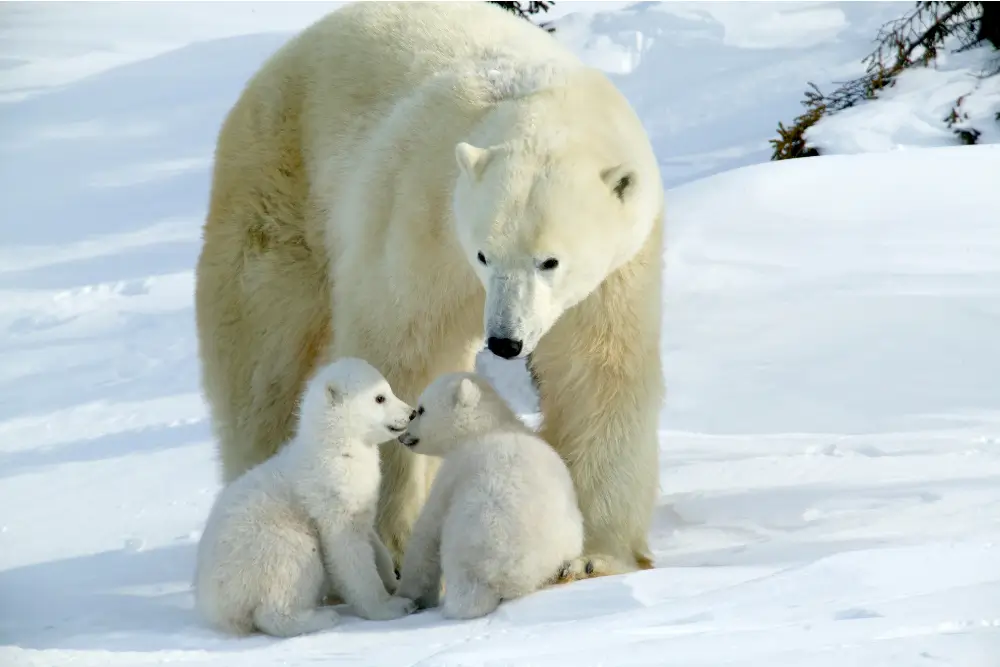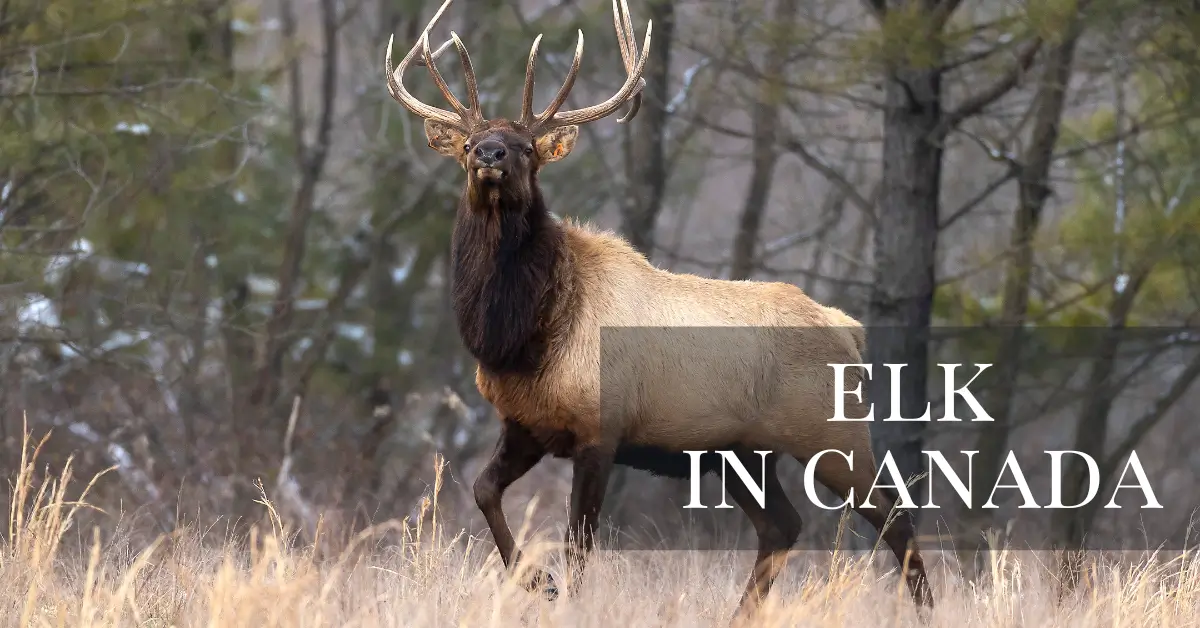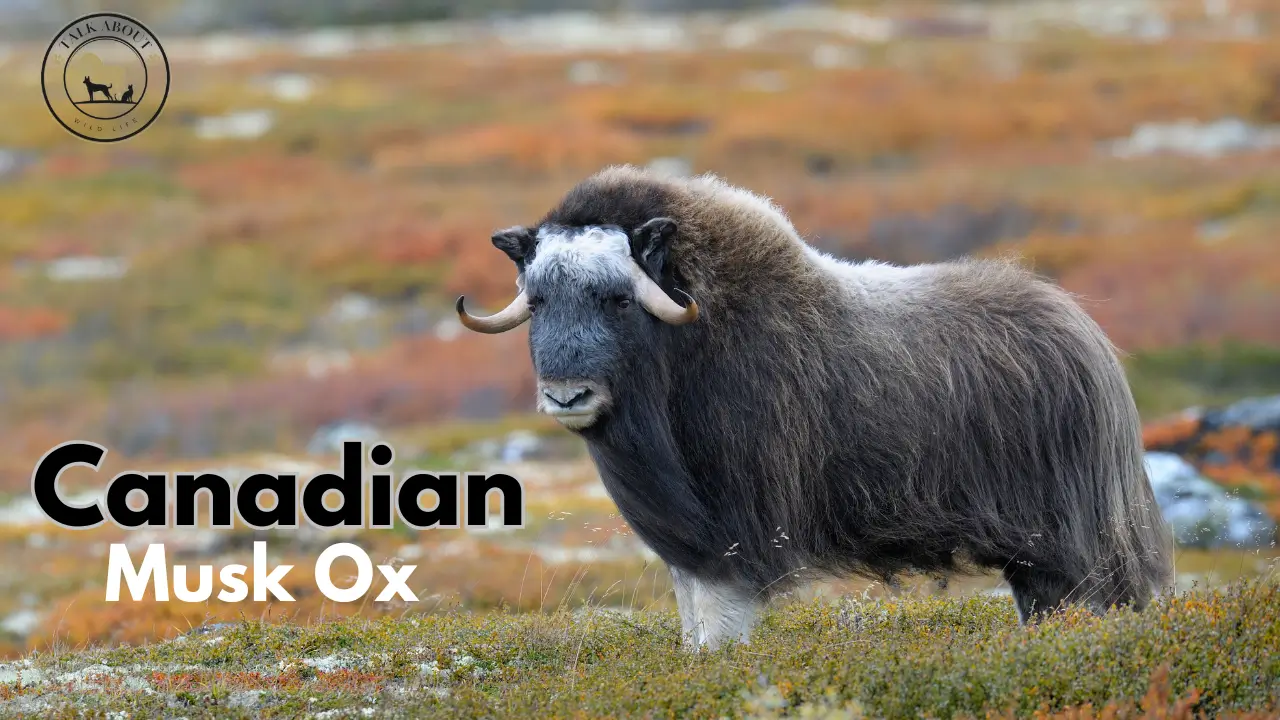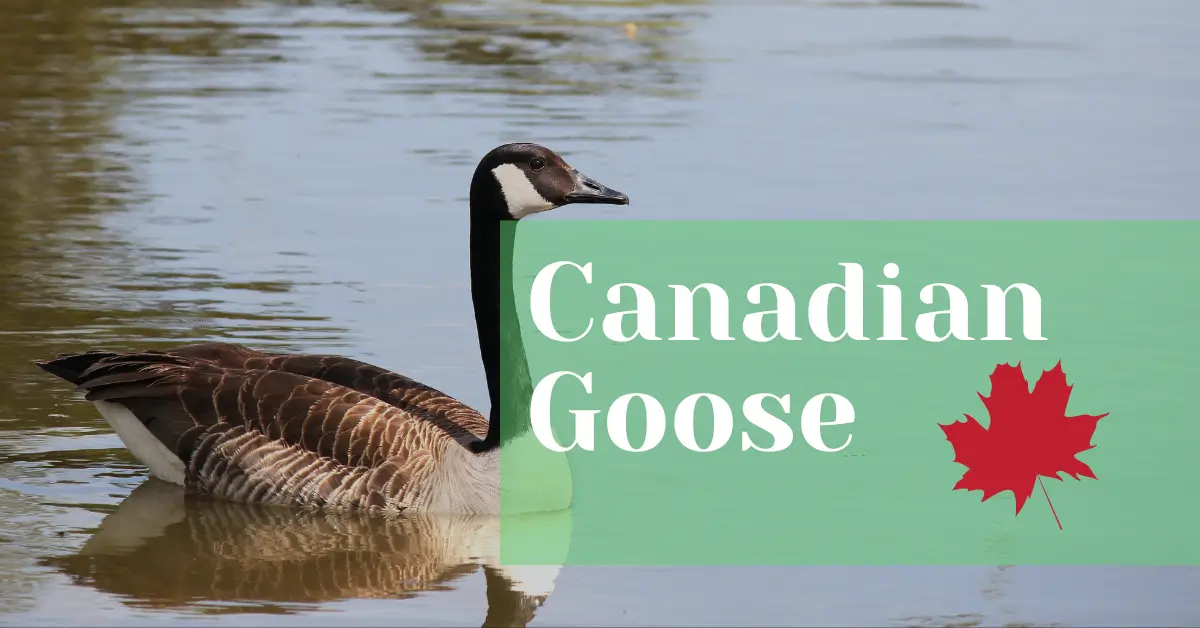The largest carnivore mammal in Canada which feeds on the animals living under the frozen water. This animal is naturally equipped to survive in harsh winter conditions and possesses heavy fur on its body. These animals fascinate the viewers and are considered beautiful organisms on this planet.
Because of the cold climatic conditions persisting in Canada throughout the year, these animals can be seen throughout the country in different places.
Physical Features and Aspects
Following are some physical features and aspects of the polar bears that you must know;
| Features | Relevant Information |
| Scientific Name | Ursus Maritimus |
| Life Span | Average is 25 years but it can reach up to 30 years |
| Diet | Ringed seals and other species of seals, Arctic Foxes |
| Height | Male can be 2.8 meters while female can be 2.5 meters |
| Average Weight | Male weigh about 800kg while females can weigh up to 400kg |
| Habitat | Arctic Sea and Icy areas with ice |
| Species | 13 sub-species in Canada |
Interesting Facts About Polar Bears in Canada
Here you will learn some interesting facts about the polar bears in Canada which can help you view them with some exciting expectations;
- Polar Bear Capital of the World
Churchill in Manitoba, known as the “Polar Bear Capital of the World,” has over 900 polar bears migrating each year.
- Excellent Swimmers
Polar bears are excellent swimmers and can swim continuously for over 100 miles (160 km) in search of food or suitable ice.
- Exceptional Sense of Smell
Polar bears have an incredible sense of smell. They can detect seals breathing holes from kilometers away, making them masters of finding food under the ice.
- They Are Actually Not White
They are not purely white but have black skin with transparent fur which reflects the light in a way that makes them look white.
- Kings of Food Chain
In Canada’s Arctic regions, polar bears are at the top of the food chain, with no natural predators except for other polar bears.
Sightseeing of The Polar Bears
Polar bears are normally found in the coastal regions of the Arctic Sea but their habitat changes according to the season.
Where to See Polar Bears in Canada
They can be seen in the ice-covered regions of Canada and typically all across the country at specific places.
| Direction of the Country | Places Where Polar Bears are Found |
| Western Side | Yukon, Lancaster Sound, and Beaufort Sea |
| Eastern Side | Labrador Sea and Newfoundland |
| Northern Territory | Northern Ellesmere |
| Southern Territory | James Bay |
When to See Polar Bears in Canada
They can be seen throughout the year depending on which season you are planning to see them.
| Season | Location Where they Migrate |
| Autumn and Winter | Move to solid sea ice areas |
| Summer and Late Summer | Shores |
While it is fun seeing your favorite cute animal in the Arctic area, you must always follow some precautionary measures to avoid risking your and your loved ones’ lives. Here are some of those precautions.
- Polar bears are territorial and may perceive you as a threat. Make noise to alert the bear of your presence and give it a chance to move away.
- Keep a safe distance of at least 100 yards (91 meters) and avoid getting between a mother bear and her cubs.
- Polar bears are less likely to approach larger groups. Avoid traveling alone in polar bear territory.
- Polar bears have an exceptional sense of smell. Properly store and handle food, and dispose of waste correctly to avoid attracting them.
- If a polar bear approaches, try to find a building, vehicle, or other secure shelter. Climb up if possible, as polar bears are poor climbers.
- Polar bears may be protective of their food sources and may be more aggressive near seal dead bodies hunted by them.
- Avoid sudden movements or running, as this may trigger a chase response in the bear.
- Carry bear deterrents such as bear spray, flares, or loud noisemakers. Familiarize yourself with their proper use beforehand.
FAQs
What does the polar bear represent in Canada?
Polar bears are well known for their intelligence and ability to survive, hunt, and live in the harsh extremes of the Arctic. They are a symbol of resilience, determination, and patience as is also represented in various movies.

